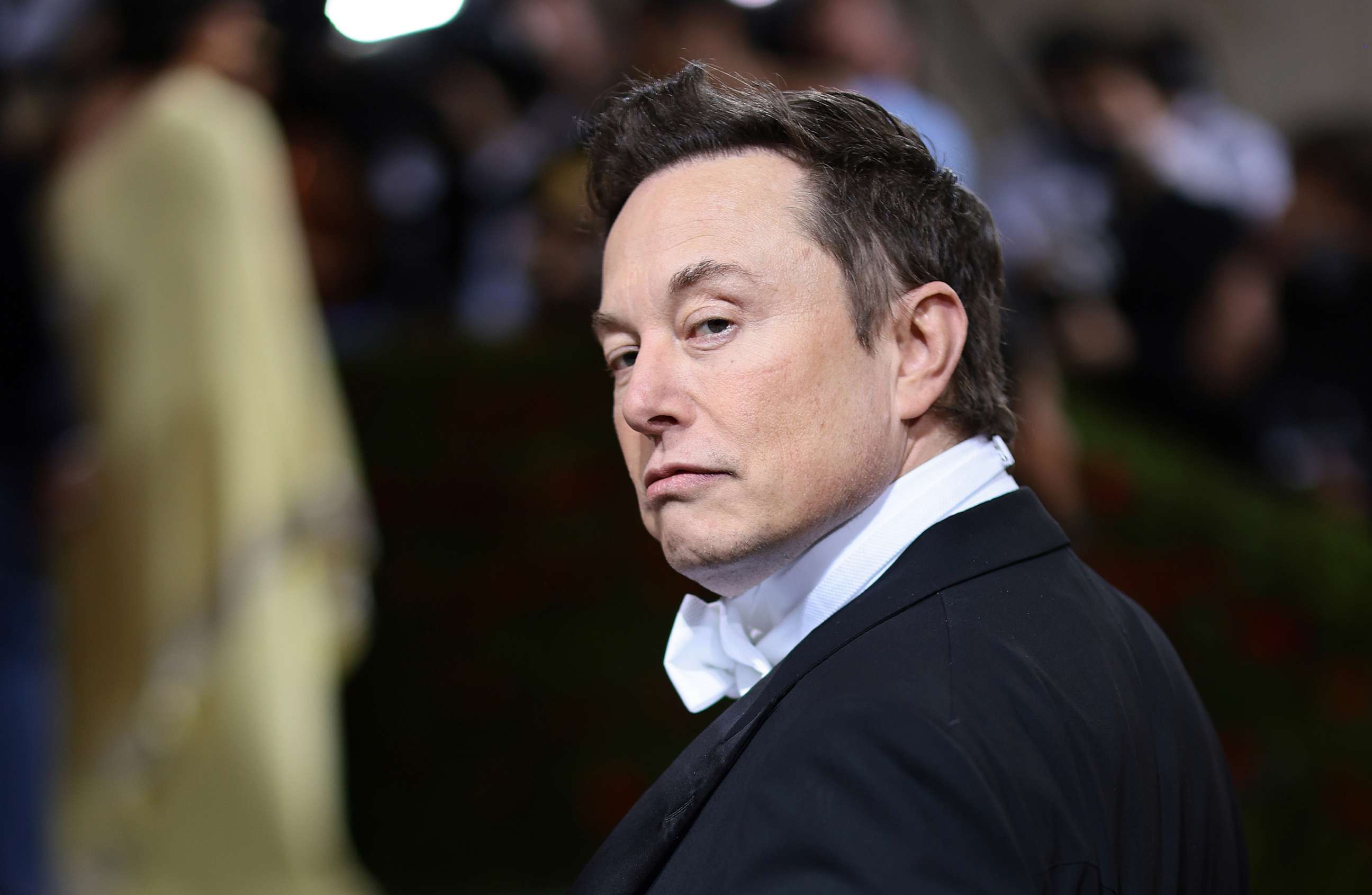Student tracking Elon Musk’s jet defends his program, considers legal threat a bluff
Despite a threat of legal action, Jack Sweeney stands by his program.
Jack Sweeney said he thinks Elon Musk's threat to sue him for sharing the status of his private jet is most likely a bluff.
"I don't think that'll happen," Sweeney said in an interview with ABC News. "That would just continue to look worse for him."
The 20-year-old University of Central Florida student and self-proclaimed aviation fan developed a program to track the whereabouts of private planes, including Elon Musk's.
Since creating the program as his first coding project, Sweeney said he gradually gained followers and even attracted a $5,000 offer from Musk last January to take down the Twitter account that linked to the program and help make it harder to track Musk, but their negotiations stalled. He ran tracking accounts for multiple planes associated with celebrities and government entities.
This week, Twitter, which Musk bought in October, suspended the @ElonJet account, Sweeney's personal account, the accounts for Sweeney's other jet trackers and later the accounts of several journalists who Musk claimed had shared or "doxxed" his location.

"Any account doxxing real-time location info of anyone will be suspended, as it is a physical safety violation," Musk wrote on Twitter Wednesday, an apparent justification for taking down Sweeney's accounts.
Some observers said the policy change marked a reversal from a position Musk took in November when he tweeted, "My commitment to free speech extends even to not banning the account following my plane, even though that is a direct personal safety risk."
"It's a complete flip really," Sweeney said.
After a Twitter poll posted by Musk showed a majority of respondents supported restoring the accounts, Musk on Saturday reinstated the journalists' accounts; Sweeney's personal account, @ElonJet, and his other accounts remain suspended.
Representatives for Musk and Twitter did not immediately respond to ABC News' requests for comment.
Musk also posted on Wednesday a video of a car which Musk alleged was driven by "a crazy stalker" who blocked his car and climbed onto his hood. He added that "Legal action is being taken against Sweeney & organizations who supported harm to my family."
Sweeney rebutted the idea that he was involved in stalking, noting that not only was the last post from @ElonJet more than 24 hours before the incident, but also flagging that the location associated with Musk's video was far from any airport.
"He literally uses the word that I supported harm against him," Sweeney said. "I don't support that; I did this because I was a fan."
Sweeney elaborated that he originally created @ElonJet because he was a fan of Musk's companies SpaceX and Tesla.
"Just like the $5,000, I think he just expected me to, you know, give up," Sweeney said. "Just because you're someone I followed, and I was a fan. I'm not gonna you know, listen to everything you say."
"You dox, you get suspended," Musk said Friday on a Twitter spaces online forum with over 30,000 attendees including Sweeney. "End of story."

Sweeney thought Musk's contributions to the conversation at the forum were limited.
"He kind of just said that and rage quit," Sweeney said.
Jeff Kosseff, a cybersecurity expert and United States Naval Academy professor, noted that "doxxing" lacks a legal framework and that there is not a standalone criminal charge called “doxxing.”
"It very well could violate cyberbullying or harassment laws, depending on the specific case and law," Kosseff said.
Kosseff said a private company such as Twitter can create and enforce whatever definition it deems reasonable.
"It's just it's more of a social construct of what people think doxxing, so there's not, we're not really far enough along to have any formal agreement as to what exactly doxxing is," he said.
Kosseff noted that experts disagree about whether malicious intent is a necessary component for doxxing. "We just have basically, whatever the individual person who's talking about it thinks doxxing is," he said.
He said he would be unable to comment if @ElonJet could be considered doxxing, due to the number of variables and nature of the data, which is public but technically difficult to access or interpret without additional information.
"Twitter's free to set whatever policies it wants in terms of what doxxing would be," he said. Kosseff added that Musk's concern about real-time flight information impacting him or his family is a valid concern.
For now, Sweeney says he still plans to continue tracking Musk's jet and those of others through his website and social media accounts.
"If I stop, you know, I let him win," he said.
He is unsure if using @ElonJet will be viable on Twitter if Musk imposes a delay on real-time tracking or continues the suspension.
"I would just feel watched over, you know, his team and everything, I'm sure would be watching all my stuff," he said. "So I don't even know if I would want to come back to Twitter."
If Musk pursues legal action, Sweeney indicated he would stand by his program.
"If Elon tries to come after me legally, you know, I'll be there," he said.
The story was updated to clarify a previous quote by Jeff Kosseff.




